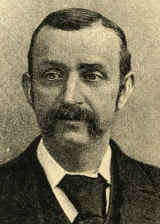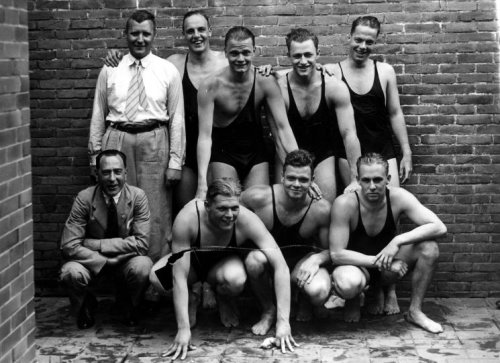|
Karel Schmuck
Karel Schmuck (born 29 December 1913, date of death unknown) was a Czech water polo player. He competed in the men's tournament at the 1936 Summer Olympics The 1936 Summer Olympics (German: ''Olympische Sommerspiele 1936''), officially known as the Games of the XI Olympiad (German: ''Spiele der XI. Olympiade'') and commonly known as Berlin 1936 or the Nazi Olympics, were an international multi-sp .... References External links * 1913 births Year of death missing Czechoslovak male water polo players Olympic water polo players for Czechoslovakia Water polo players at the 1936 Summer Olympics Place of birth missing {{CzechRepublic-waterpolo-bio-stub ... [...More Info...] [...Related Items...] OR: [Wikipedia] [Google] [Baidu] |
Water Polo
Water polo is a competitive team sport played in water between two teams of seven players each. The game consists of four quarters in which the teams attempt to score goals by throwing the ball into the opposing team's goal. The team with the most goals at the end of the game wins the match. Each team is made up of six field players and one goalkeeper. Excluding the goalkeeper, players participate in both offensive and defensive roles. It is typically played in an all-deep pool where players cannot touch the bottom. A game consists mainly of the players swimming to move about the pool, treading water (mainly using the eggbeater kick), passing the ball, and shooting at the goal. Teamwork, tactical thinking and awareness are also highly important aspects. Water polo is a highly physical and demanding sport and has frequently been cited as one of the most difficult to play. Special equipment for water polo includes a water polo ball, a ball of varying colors which floats on the ... [...More Info...] [...Related Items...] OR: [Wikipedia] [Google] [Baidu] |
Water Polo
Water polo is a competitive team sport played in water between two teams of seven players each. The game consists of four quarters in which the teams attempt to score goals by throwing the ball into the opposing team's goal. The team with the most goals at the end of the game wins the match. Each team is made up of six field players and one goalkeeper. Excluding the goalkeeper, players participate in both offensive and defensive roles. It is typically played in an all-deep pool where players cannot touch the bottom. A game consists mainly of the players swimming to move about the pool, treading water (mainly using the eggbeater kick), passing the ball, and shooting at the goal. Teamwork, tactical thinking and awareness are also highly important aspects. Water polo is a highly physical and demanding sport and has frequently been cited as one of the most difficult to play. Special equipment for water polo includes a water polo ball, a ball of varying colors which floats on the ... [...More Info...] [...Related Items...] OR: [Wikipedia] [Google] [Baidu] |
Water Polo At The 1936 Summer Olympics
Final results for the water polo tournament at the 1936 Summer Olympics: Medal summary Results Elimination rounds In the first round each team in a group played each other team in the same group. The placings were determined on points. If the points were equal, then the better goal average decided. The first two teams of each group were qualified for the semi-finals, while the third and fourth placed team was eliminated. Group 1 Group 2 Group 3 Group 4 Semi-finals As in the elimination round each team in a group played each other team in the same group unless they had met in the previous round. In this case the previous result stood and was carried forward to this group. So in each group only four matches had to be played. The placings were determined on points. If the points were equal, then the better goal average decided. The first two teams of each group were qualified for the final round, while the third and fourth placed team were eliminated and took part i ... [...More Info...] [...Related Items...] OR: [Wikipedia] [Google] [Baidu] |
1936 Summer Olympics
The 1936 Summer Olympics (German: ''Olympische Sommerspiele 1936''), officially known as the Games of the XI Olympiad (German: ''Spiele der XI. Olympiade'') and commonly known as Berlin 1936 or the Nazi Olympics, were an international multi-sport event held from 1 to 16 August 1936 in Berlin, Germany. Berlin won the bid to host the Games over Barcelona at the 29th IOC Session on 26 April 1931. The 1936 Games marked the second and most recent time the International Olympic Committee gathered to vote in a city that was bidding to host those Games. Later rule modifications forbade cities hosting the bid vote from being awarded the games. To outdo the 1932 Los Angeles Games, Reich Führer Adolf Hitler had a new 100,000-seat track and field stadium built, as well as six gymnasiums and other smaller arenas. The Games were the first to be televised, with radio broadcasts reaching 41 countries.Rader, Benjamin G. "American Sports: From the Age of Folk Games to the Age of Televised Spo ... [...More Info...] [...Related Items...] OR: [Wikipedia] [Google] [Baidu] |
1913 Births
Events January * January 5 – First Balkan War: Battle of Lemnos – Greek admiral Pavlos Kountouriotis forces the Turkish fleet to retreat to its base within the Dardanelles, from which it will not venture for the rest of the war. * January 13 – Edward Carson founds the (first) Ulster Volunteer Force, by unifying several existing loyalist militias to resist home rule for Ireland. * January 23 – 1913 Ottoman coup d'état: Ismail Enver comes to power. * January – Stalin (whose first article using this name is published this month) travels to Vienna to carry out research. Until he leaves on February 16 the city is home simultaneously to him, Hitler, Trotsky and Tito alongside Berg, Freud and Jung and Ludwig and Paul Wittgenstein. February * February 1 – New York City's Grand Central Terminal, having been rebuilt, reopens as the world's largest railroad station. * February 3 – The 16th Amendment to the United S ... [...More Info...] [...Related Items...] OR: [Wikipedia] [Google] [Baidu] |
Year Of Death Missing
A year or annus is the orbital period of a planetary body, for example, the Earth, moving in its orbit around the Sun. Due to the Earth's axial tilt, the course of a year sees the passing of the seasons, marked by change in weather, the hours of daylight, and, consequently, vegetation and soil fertility. In temperate and subpolar regions around the planet, four seasons are generally recognized: spring, summer, autumn and winter. In tropical and subtropical regions, several geographical sectors do not present defined seasons; but in the seasonal tropics, the annual wet and dry seasons are recognized and tracked. A calendar year is an approximation of the number of days of the Earth's orbital period, as counted in a given calendar. The Gregorian calendar, or modern calendar, presents its calendar year to be either a common year of 365 days or a leap year of 366 days, as do the Julian calendars. For the Gregorian calendar, the average length of the calendar year (the me ... [...More Info...] [...Related Items...] OR: [Wikipedia] [Google] [Baidu] |
Czechoslovak Male Water Polo Players
Czechoslovak may refer to: *A demonym or adjective pertaining to Czechoslovakia (1918–93) **First Czechoslovak Republic (1918–38) **Second Czechoslovak Republic (1938–39) **Third Czechoslovak Republic (1948–60) **Fourth Czechoslovak Republic (1960–89) **Fifth Czechoslovak Republic (1989–93) *''Czechoslovak'', also ''Czecho-Slovak'', any grouping of the Czech and Slovak ethnicities: **As a national identity, see Czechoslovakism **The title of Symphony no. 8 in G Major op. 88 by Antonín Dvořák in 1889/90 *The Czech–Slovak languages, a West Slavic dialect continuum **The Czechoslovak language, a theoretical standardized form defined as the state language of Czechoslovakia in its Constitution of 1920 **Comparison of Czech and Slovak See also * Slovak Republic (other) * Czech Republic (other) * Czechia (other) * Slovak (other) * Czech (other) Czech may refer to: * Anything from or related to the Czech Republic, a country ... [...More Info...] [...Related Items...] OR: [Wikipedia] [Google] [Baidu] |
Olympic Water Polo Players For Czechoslovakia
Olympic or Olympics may refer to Sports Competitions * Olympic Games, international multi-sport event held since 1896 ** Summer Olympic Games ** Winter Olympic Games * Ancient Olympic Games, ancient multi-sport event held in Olympia, Greece between 776 BC and 393 AD * Wenlock Olympian Games, a forerunner of the modern Olympic Games, held since 1850 * Olympic (greyhounds), a competition held annually at Brighton & Hove Greyhound Stadium Clubs and teams * Adelaide Olympic FC, a soccer club from Adelaide, South Australia * Fribourg Olympic, a professional basketball club based in Fribourg, Switzerland * Sydney Olympic FC, an Australian soccer club * Olympic Club (Barbacena), a Brazilian football club based in Barbacena, Minas Gerais state * Olympic Mvolyé, a Cameroonian football club based in Mvolyé * Olympic Club (Egypt), a football and sports club based in Alexandria * Blackburn Olympic F.C., an English football club based in Blackburn, Lancashire * Rushall Olympic F. ... [...More Info...] [...Related Items...] OR: [Wikipedia] [Google] [Baidu] |
Water Polo Players At The 1936 Summer Olympics
Water (chemical formula ) is an inorganic, transparent, tasteless, odorless, and nearly colorless chemical substance, which is the main constituent of Earth's hydrosphere and the fluids of all known living organisms (in which it acts as a solvent). It is vital for all known forms of life, despite not providing food, energy or organic micronutrients. Its chemical formula, H2O, indicates that each of its molecules contains one oxygen and two hydrogen atoms, connected by covalent bonds. The hydrogen atoms are attached to the oxygen atom at an angle of 104.45°. "Water" is also the name of the liquid state of H2O at standard temperature and pressure. A number of natural states of water exist. It forms precipitation in the form of rain and aerosols in the form of fog. Clouds consist of suspended droplets of water and ice, its solid state. When finely divided, crystalline ice may precipitate in the form of snow. The gaseous state of water is steam or water vapor. Water covers ab ... [...More Info...] [...Related Items...] OR: [Wikipedia] [Google] [Baidu] |





